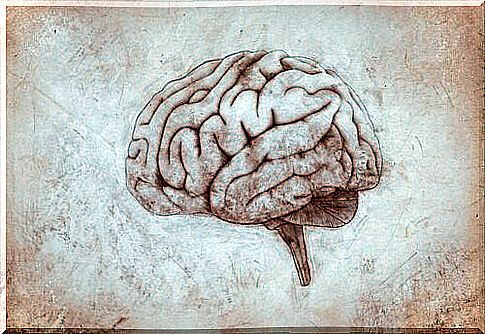Surviving Adversity Through Resilience

There are people who have the enormous capacity to impose themselves on difficulties or very painful emotional events. They have a resilient personality, they are survivors. Resilience – the ability to survive adversity – requires a great deal of positivity, perseverance and integrity.
The loss of a loved one, physical or psychological abuse, natural disasters or failures in many areas of life are circumstances that test anyone. It is possible to develop a resilient personality under dramatic conditions and learn to swim against the tide. This will allow us to survive adversity .
There are two types of resilient personalities. On the one hand, there is the ability to protect one’s identity when under pressure in the midst of destructive circumstances. On the other hand, the ability to maintain a positive life attitude in harmful conditions. It is a dynamic process of adapting to adverse environments and traumatic experiences.
The brain and suffering
Psychological suffering changes the brain. Always being on alert generates high amounts of cortisol that are necessary under normal circumstances. Our alert system needs cortisol to prepare the body for an emergency, but when levels are excessive and constant, the growth process suffers, as does the immune response and attention span.
Testosterone plays a crucial role in chronic stressful situations. Hostile circumstances considerably reduce the levels of this hormone and consequently also decrease the assertive abilities of the individual. There is a lack of attention and problems arise in finding solutions. Creativity fails, leaving room for stereotyped ideas (repetitions of already lived patterns).

How to survive adversity
In post-traumatic stress situations, a gradual distinction can be made between the non-resilient and the resilient personality. There are a great many degrees of resilience in between. In less resilient personalities, the memory of traumatic memories is reactivated in a more intense, frequent, almost compulsive way through intrusive thoughts. These memories activate brain areas such as the locus coeruleus, amygdala, hippocampus, and neocortex.
The resilient personality, on the other hand, seems to be the result of several processes that counteract these activations in hostile situations. Dehydroepiandrosterone (DHEA) plays a fundamental role, as it reduces the activity of cholesterol and inhibits excesses of glucorticoids and glutamate.
In this sense, heart and ischemic attacks are prevented. It has also been observed that statistically, subjects with greater intellectual abilities and greater cognitive activity have higher levels of resilience. They seem to be able to manage and process traumatic events more easily.
Empathy, self-knowledge, a sense of humor, a positive approach and awareness in the present are just some of the skills that can be observed in resilient people. Flexible individuals who seek meaningful purpose in their life. They have good social skills and know how to live with frustration and uncertainty.
Resilience can be trained
Our emotions and the way we deal with events are not conditioned externally as they are internally. The key lies in the interpretation. Training resilience means identifying the negative emotions that block us and the positive ones that instead push us to change.
Training resilience means developing the ability to give positive responses in the most difficult situations. In many cases it is not possible to change the circumstances, but we can develop our strengths to more easily find the answers and reduce our inner discomfort.
There are many measures we can take in this regard. Rewrite our history, help others, reduce stress, and be mentally willing to rearrange beliefs and goals. Changing our personal history allows us to see the world and ourselves from a different perspective.

To survive adversity, we must begin to see conflict as an opportunity for growth. Remembering how we have overcome obstacles in the past nurtures resilience.
Being strong requires a great deal of perseverance and trust in everything that we can develop with skill and effort, treasuring the lessons of the past and experiencing strong emotions, first learning to manage both with intelligence.









